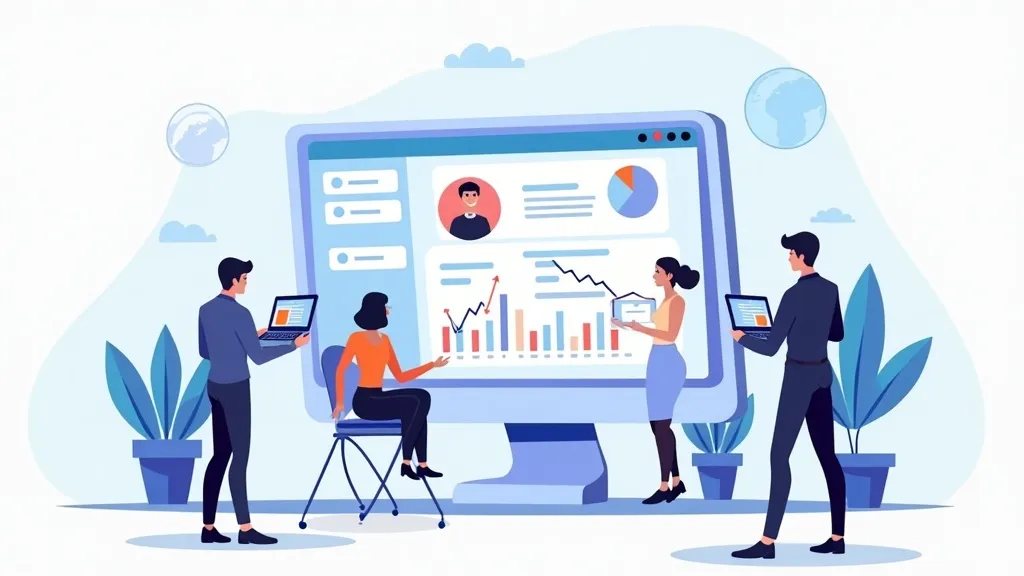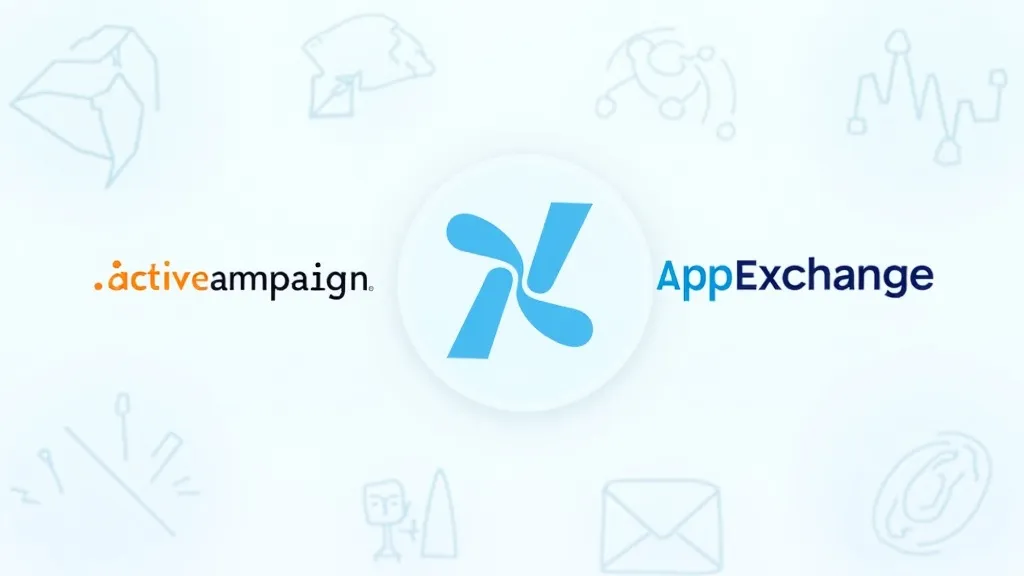Unlocking Salesforce Omni-channel CRM
Salesforce Omni-channel CRM is an advanced platform designed to optimize customer relationship management by integrating diverse communication channels into a single, cohesive system. This detailed exploration offers comprehensible insights into its features, benefits, and industry relevance, making CRM management seamless. Salesforce offers a dynamic interface that supports customer engagement and drives sales productivity across various platforms.

Introduction: Understanding Salesforce Omni-channel CRM
Salesforce Omni-channel CRM emerges as a pioneering solution in customer relationship management, equipped with an array of functionalities aimed at harmonizing interactions across diverse channels into a seamless experience. In our digital age, the significance of a unified CRM system cannot be understated. It facilitates improved customer satisfaction, streamlined operations, and heightened sales productivity. This innovative platform not only centralizes data from various sources but also ensures that organizations can engage with their customers more effectively and proactively.
Features of Salesforce Omni-channel CRM
The Salesforce Omni-channel CRM supports a variety of features designed to enhance user experience and operational efficiency. Understanding these features not only helps businesses in decision-making when adopting the CRM but also sheds light on how each feature can specifically benefit various operations.
- Unified Interface: It integrates all communication platforms — email, social media, phone, and more — into a single dashboard, providing a holistic view of customer interactions. This feature minimizes the challenges of switching between multiple platforms, reducing the cognitive load on employees and improving their efficiency. With everything in one place, team members can quickly respond to customer inquiries without delay.
- Advanced Analytics: Salesforce offers robust analytical tools that allow businesses to gain valuable insights into customer behaviors and preferences. The platform’s analytical capabilities include reports, dashboards, and predictive analytics, allowing companies to forecast trends and understand the effectiveness of their marketing strategies. This data-driven approach enables firms to refine their marketing efforts and target customers more effectively.
- Customer-Centric Tools: Equipped with AI-based tools, the CRM offers personalized customer interactions, improving engagement and conversion rates. The AI functionalities include automated responses, chatbots, and personalized recommendations, ensuring that customers feel valued and properly catered to based on their unique preferences and past interactions.
- Scalability: The system is designed to scale alongside business needs, supporting growth without sacrificing functionality. Businesses can start with essential features and expand into more complex functionalities as their needs evolve, making it ideal for companies of all sizes, from startups to large enterprises.
- Customization: Users can tailor the CRM to match specific operational requirements, ensuring relevance and adaptability. Customization comes in various forms, such as modifying workflows, creating custom fields, or integrating third-party applications, which allows organizations to create a CRM environment that closely aligns with their operational needs.
The Role of Salesforce Omni-channel CRM in Business Efficiency
Implementing Salesforce Omni-channel CRM leads to enhanced business processes by:
- Reducing Response Time: By offering real-time data across platforms, employees can address customer inquiries efficiently. The speed with which teams can respond to questions or concerns directly influences customer satisfaction, thereby driving loyalty and retention.
- Improving Collaboration: With accessible, consolidated customer information, departments within a company can collaborate more effectively. By breaking down silos, employees can share insights, which enriches the customer experience and allows for better service delivery.
- Enhancing Customer Retention: Personalized and prompt service fosters loyalty, encouraging repeat business. By anticipating customer needs through data analysis, businesses can implement proactive engagement strategies, further solidifying the customer relationship.
Comparison with Other CRM Systems
In evaluating Salesforce Omni-channel CRM against other systems, consider these factors:
| Aspect | Salesforce Omni-channel CRM | Competitors |
|---|---|---|
| Integration Capability | Seamless, supports a wide range of platforms | Varies significantly; some may lack comprehensive integrations |
| Analytical Tools | Advanced, predictive analytics with customizable dashboards | Basic to advanced competing suites; often less flexible |
| Scalability | Highly scalable, adaptable to growth; suitable for all business sizes | Often requires significant upgrades or risks feature limitations |
| User Experience | Intuitive and user-friendly interface that requires minimal training | User interfaces vary; some may require extensive training |
| Support and Community | Robust support system and a large community of users | Support varies; lesser-known platforms may have limited resources |
Frequently Asked Questions (FAQs)
- What is Salesforce Omni-channel CRM top used for?
It's top used for managing and optimizing customer interactions across varied platforms, facilitating a unified customer service experience. The CRM helps businesses craft meaningful engagements by providing comprehensive customer knowledge.
- What businesses benefit very from Salesforce Omni-channel CRM?
Businesses that thrive on customer interaction, like retail, finance, healthcare, and tech industries, will find immense value in this CRM system. Companies requiring a quick turnaround on customer service inquiries and personalized marketing strategies particularly excel using this tool.
- How does it handle customer data?
Salesforce CRM offers secure, efficient data management that complies with global data protection regulations. Its encryption methods and data management policies ensure customer information is handled responsibly and ethically, building trust with clients.
- Can Salesforce Omni-channel CRM be integrated with other tools?
Yes, Salesforce offers extensive integration capabilities with numerous third-party applications, including marketing tools, e-commerce platforms, and customer support systems. This interoperability enhances its utility and ensures that businesses can create a connected ecosystem tailored to their needs.
Implementing Salesforce Omni-channel CRM: A Step-by-Step Guide
For a successful implementation, follow these steps:
- Assessment: Identify specific business needs and goals. This step involves engaging key stakeholders, reviewing current processes, and pinpointing areas that require improvement.
- Selection: Choose the right Salesforce CRM package that aligns with business objectives. Salesforce offers various packages that cater to different business sizes, budgets, and operational requirements.
- Training: Invest in comprehensive training for staff to maximize system proficiency. Training should cover both the technical aspects of using the CRM and the strategic use to enhance customer interactions.
- Integration: Work on seamless integration with existing systems for smooth transitions. Easing the transition is critical; utilizing connectors and middleware can streamline the integration process, ensuring uninterrupted operations.
- Review: Periodically review CRM effectiveness and recalibrate as needed. Continuous improvement plans should be established to regularly assess system performance, user engagement, and customer satisfaction metrics.
- Feedback Loop: Create a structured feedback loop that enables users to share experiences, issues, and recommendations. This fosters a culture of continuous improvement and ensures the system evolves with user needs.
Best Practices for Maximizing Salesforce Omni-channel CRM
To fully leverage the capabilities of Salesforce Omni-channel CRM, businesses should consider the following best practices:
- Data Quality Management: Ensure that the data entered into the CRM is accurate and up-to-date. Regular audits and data cleaning processes can enhance the overall effectiveness of customer insights.
- Encourage Cross-Department Collaboration: Utilize the CRM to facilitate collaboration between different departments, breaking down silos and sharing customer insights for a more integrated approach to service.
- Use Automation Wisely: Explore automation features for repetitive tasks, such as follow-up emails or customer reminders. However, balance automation with the need for personal, human interactions in key customer engagements.
- Set Clear KPIs: Clearly define Key Performance Indicators (KPIs) for monitoring the performance of the CRM and its impact on business processes. This could include customer satisfaction scores, response times, and conversion rates.
- Regular Training Updates: As Salesforce updates its platform and introduces new features, regular training sessions should be scheduled to keep staff informed and capable of leveraging new functionalities.
Case Studies: Success Stories with Salesforce Omni-channel CRM
Real-world applications provide valuable insights into the practical benefits of implementing Salesforce Omni-channel CRM. Below are illustrative case studies from various industry leaders.
Case Study 1: Retail Revolution
A leading retail chain faced challenges with customer engagement and satisfaction metrics. Upon implementing the Salesforce Omni-channel CRM, the company integrated their online and in-store customer interactions. This provided a unified dashboard for staff, allowing them to see the customer’s purchase history and preferences across all channels.
The result was a 30% increase in customer retention rates as customers received tailored promotions and personalized service. Furthermore, insights drawn from the analytics tools enabled the business to adjust its inventory and staffing in peak shopping periods, improving the overall shopping experience.
Case Study 2: Banking on Innovation
A prominent financial institution adopted Salesforce Omni-channel CRM to enhance its customer service capabilities. By automating responses for loan inquiries and account information requests, the bank reduced average response times from 48 hours to just under 2 hours.
This efficiency led to a significant increase in customer satisfaction scores, with customers reporting a better overall experience and quicker access to critical financial information, allowing the bank to strengthen its brand reputation.
Case Study 3: Health Sector Transformation
A healthcare provider struggled with patient appointment scheduling and follow-ups, often resulting in missed appointments. After implementing Salesforce Omni-channel CRM, the provider utilized automated reminders and a patient portal where patients could book, cancel, or reschedule appointments.
This enhancement led to a 40% drop in missed appointments and significantly increased patient engagement. Analytics dashboards provided the healthcare provider with insights into patient behaviors, allowing for more targeted health campaigns and delivery of personalized care plans.
The Future of Salesforce Omni-channel CRM
As technology continues to evolve, so does the landscape of customer relationship management. The future of Salesforce Omni-channel CRM is poised to integrate even more artificial intelligence and machine learning complexities. Predictive analytics will play a significant role in anticipating customer behaviors, enabling businesses to act proactively rather than reactively.
We can also expect an increased emphasis on mobile functionality, allowing users to access CRM tools and customer data from their devices. This will further enhance responsiveness and agility in dealing with customer inquiries, driving efficiency across organizations.
Moreover, as data privacy becomes a more focal concern globally, Salesforce will likely place greater emphasis on compliance features, offering businesses enhanced security measures to safeguard customer information.
Conclusion: The Lasting Impact of Salesforce Omni-channel CRM
In conclusion, Salesforce Omni-channel CRM stands as an exemplary tool in the domain of customer relationship management, empowering businesses to navigate the complexities of modern-day consumer interactions effortlessly. By adopting Salesforce, organizations can expect improvements in customer satisfaction and internal efficiencies, laying the groundwork for sustainable growth and success. The system's adaptability and advanced functionalities ensure that it remains a vital asset in any business's arsenal.
Salesforce Omni-channel CRM not only addresses the immediate needs of customer engagement but also positions companies to anticipate future trends and shifts in customer expectations. This forward-thinking approach, embedded within the Salesforce platform, ensures that businesses are not just surviving in a competitive marketplace but are thriving by fostering meaningful, lasting customer relationships.










